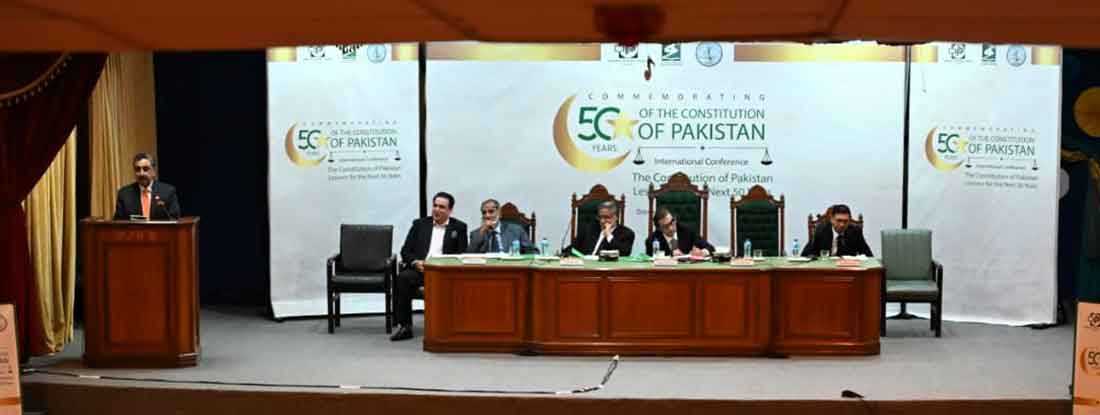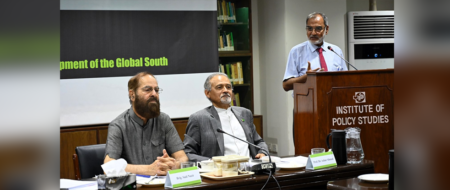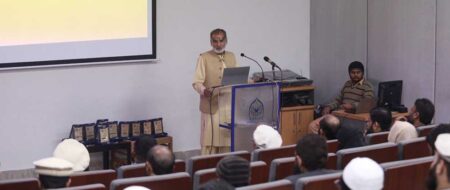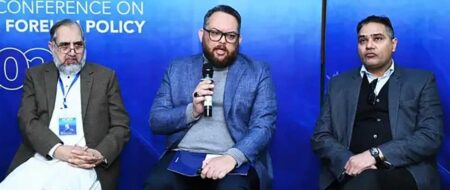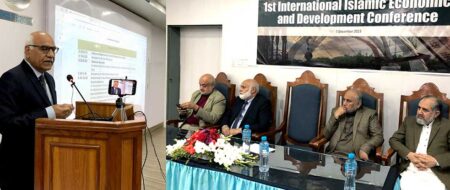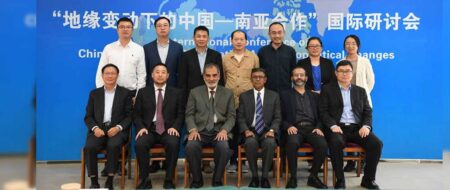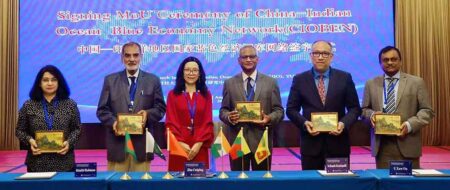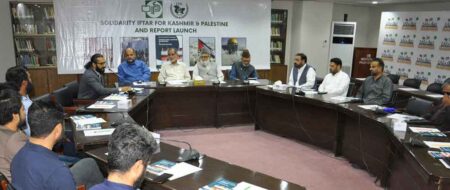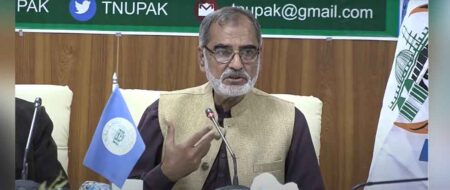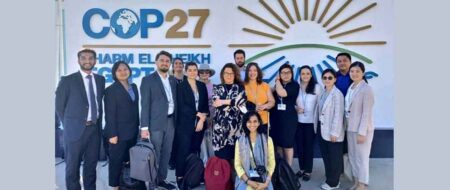IPS-FJWU Conference | ‘The Constitution of Pakistan: Lessons for the Next 50 Years’
Experts call for fiscal devolution, empowering CCI, local governments, highlight role of NFC for federal harmony
Harmonizing post-18th amendment scenario among federating units and all constitutional stakeholders, which is marred with differences creating numerous governance challenges, in tandem with ensuring timely elections for democratic continuity, remains indispensable for reconciling and preserving the spirit of the 1973 Constitution of Pakistan for a stable and prosperous future of the country.
A functional Council of Common Interests (CCI) with its rules of business, consistent National Finance Commission (NFC) Award governed through subordinate legislation, and devolution of political, financial, and administrative authority empowering local governments are also imperative to create the right environment to renew Pakistan’s commitment to federalism, uphold the constitution’s mandate, and protect its basics for the next 50 years.
A civil-military dialogue is the only solution to the dilemma persisting between the need for a professional army and military influence in politics. The best forum for this purpose is the National Security Committee (NSC), which needs to effectively function as a platform for regular dialogue and consultation. In addition, both military and civil stakeholders must commit to the Constitution, as well as people’s welfare beyond the power dynamics.
Another dilemma is that Pakistan still needs to define itself as a welfare state or security state. Striking a balance between the two is critical to ensuring a strong democratic framework in which the military’s role is subordinate to civilian rule.
This all was highlighted by veteran statesmen, jurists, and constitutional experts during the inaugural session of the two-day international conference titled ‘The Constitution of Pakistan: Lessons for Next 50 Years’, co-organized by the Institute of Policy Studies (IPS), Islamabad, and the Department of Law, Fatima Jinnah Women University (FJWU), Rawalpindi, at the latter’s premises on October 18-19, 2023.
The conference was addressed on the first day, among others, by Justice Jawad Hassan, Judge, Lahore High Court, Khalid Rahman, chairman, IPS, Muhammad Akram Shaikh, senior advocate, Supreme Court of Pakistan, Hamid Khan, senior advocate, Supreme Court of Pakistan & author, Haroon-ur-Rashid, vice chairman, Pakistan Bar Council, Ahmer Bilal Soofi, senior advocate, Supreme Court of Pakistan & former federal minister of law, Riffat Inam But, secretary, Law & Justice Commission of Pakistan, Justice Dr Syed Muhammad Anwer, Federal Shariat Court, Dr Tamara Sonn, Georgetown University, Washington DC, Barrister Zafarullah Khan, senior advocate, Supreme Court of Pakistan & former special assistant to the PM on law, Ambassador (r) Syed Abrar Hussain, vice chairman, IPS, and Professor Dr Fakhr-Ul-Islam, advisor research at IPS and former DG, Pakistan Study Centre, University of Peshawar.
The prominent speakers on the second day included Raja Zafar-ul-Haq, former senator, Khalid Rahman, chairman IPS, Owais Ahmed Ghani, former governor, Balochistan and KP, Amanullah Kanrani, Balochistan’s interim law minister, Dr Saima Hamid, former vice chancellor, FJWU, Prof Dr Shoaib Akhtar, dean, FJWU, Aftab Memon, former federal secretary, Ministry of Interprovincial Coordination, Inayatuallah Khan, former minister for local governments, Khyber Pakhtunkhwa, Lt Gen (r) Naeem Khalid Lodhi, former federal minister for national security, Ahmed Bilal Mehboob, president, PILDAT (Pakistan Institute of Legislative Development and Transparency), Prof Dr Aziz-ur-Rahman, director, School of Law, Quaid-i-Azam University, Islamabad, Dr Nadia Khadam, head, Department of Law, FJWU, and Prof Dr Fakhr-ul-Islam, advisor research IPS and former DG, Pakistan Study Centre, University of Peshawar.
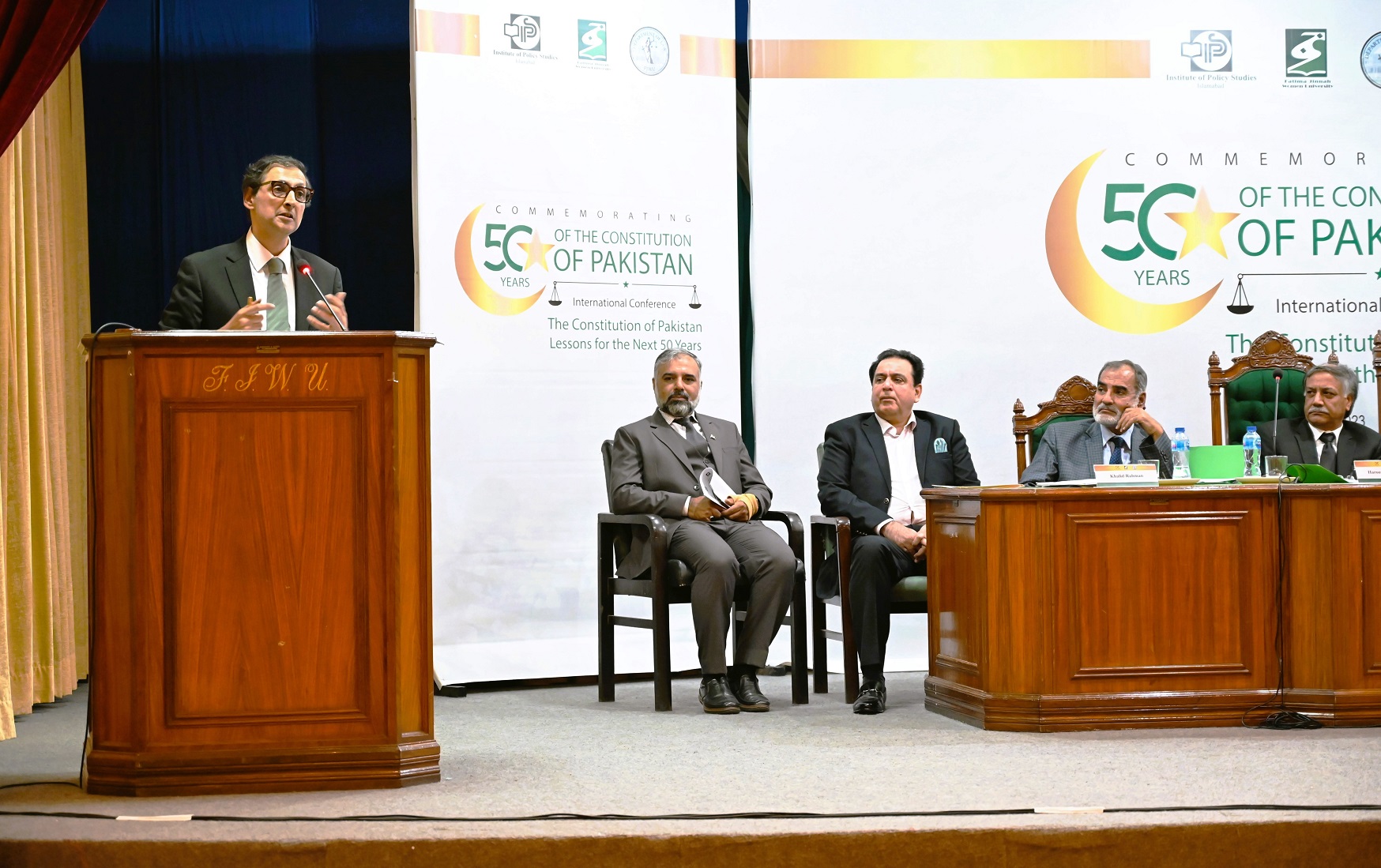
“Pakistan’s constitution is one of the best,” remarked Justice Jawad Hassan in his speech as the chief guest of the inaugural session.
He noted that the strength of the constitution is rooted in the will and empowerment of people as enshrined in various articles such as Article 4, ‘the protection of the law’ as the right of the individual, Article 5, the obedience of constitution as ‘the inviolable obligation of every citizen,’ and Article 189, decisions of Supreme Court are binding on other courts.
He further said that, as a guardian of justice and democracy, the 1973 Constitution continues to evolve and adapt to the needs of the nation, and through the role of the judiciary, ensures its people remain empowered and protected.
Khalid Rahman talked about the empowerment of people as a prerequisite to governance. He said that the struggle for empowerment should be against elites and for that education and political awareness must be embedded in national life.
Ahmer Bilal, in his keynote speech, maintained that Pakistan’s constitution serves as a finely balanced institution that united four provincial units and all other diverse groups and regions of the country. This consensus, followed by voluntary following, is an achievement.
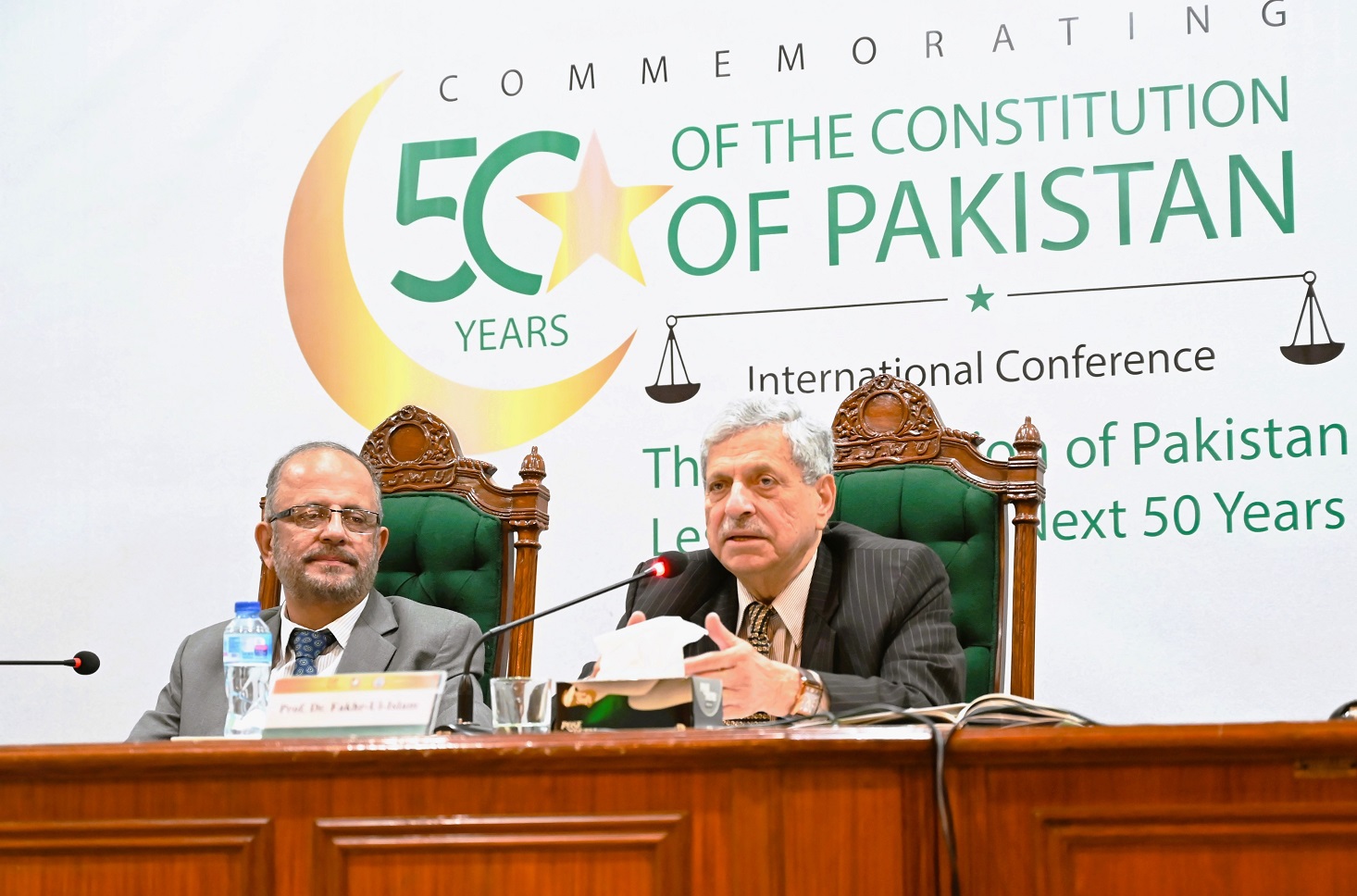
However, new challenges emerged after the 18th amendment, emphasizing the need for a more comprehensive and dedicated approach to its enforcement. To address this issue and ensure the continued integrity of the constitution, he stressed that concerted efforts are required to make the 18th amendment work effectively.
Following the inaugural, three sessions were held on three major themes: ‘Constitution and National Integration,’ ‘Democracy and Public Representation,’ and ‘Operationalizing the Constitution: The Role of Executive’, in which multi-disciplinary researchers from more than eight national and three international universities presented 25 papers on various research topics related to the constitution.
Senior statesmen, and constitutional and legal experts addressing the sessions emphasized that providing protection and benefit of fundamental rights through state policies and rules are guarantees for national integration. However, there is a need to make procedural rules to ensure the protection that the law provides. Equally significant is social inclusion in national integration and the consideration of the societal implications of decisions in light of fundamental rights and Principles of Policies.
Furthermore, to ensure the efficient operationalization of the constitution, integration, and the rule of law, state institutions, and executive authorities must practice within their limits as delegated by the constitution.
The speakers also stressed on the importance of the constitution with regard to international relations as it sets the policy guidelines and direction for treaties, agreements, and foreign policy. This is especially important in today’s highly polarized world.
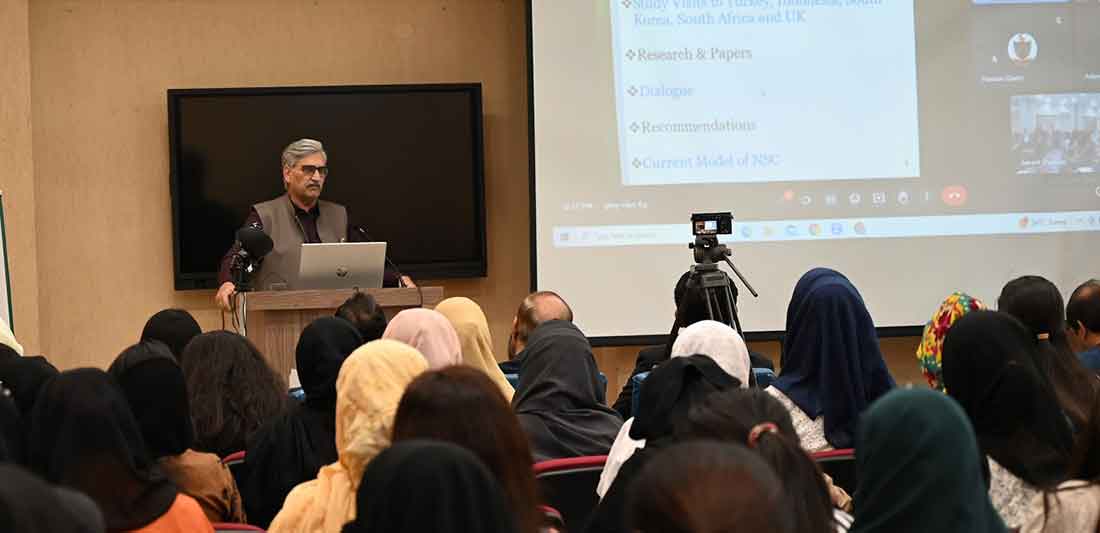
Emphasizing the fundamental principles upon which Pakistan was founded – unity amidst diversity and a strong federal structure – the speakers on the second day highlighted concerns related to the Council of Common Interests (CCI) and National Finance Commission (NFC) Award, underscoring the need for meaningful reforms.
As the 1973 Constitution inherently carries the characteristic of federalism, aimed at safeguarding provincial rights and fostering equitable socio-economic development, this unity remains pivotal to Pakistan’s survival.
However, there are rising concerns about the functionality of the CCI, meant to safeguard and protect the rights of the provinces, as its secretariat remains nonfunctional for all practical purposes, said Inayatullah Khan.
The issue has been compounded because there are no rules of business for the CCI even after 50 years, added Amanullah Kanrani.
The speakers said this dysfunctionality is undermining the spirit of federalism and fueling dissatisfaction among provinces because their rights are not being upheld.
Furthermore, the National Finance Commission (NFC) has failed to implement its Awards to the provinces. Since 2010, the succeeding NFCs have struggled to reach a consensus and implement awards within their stipulated time period, in violation of the constitution. Subordinated legislation is needed to govern NFC awards for consistency, emphasized the speakers.
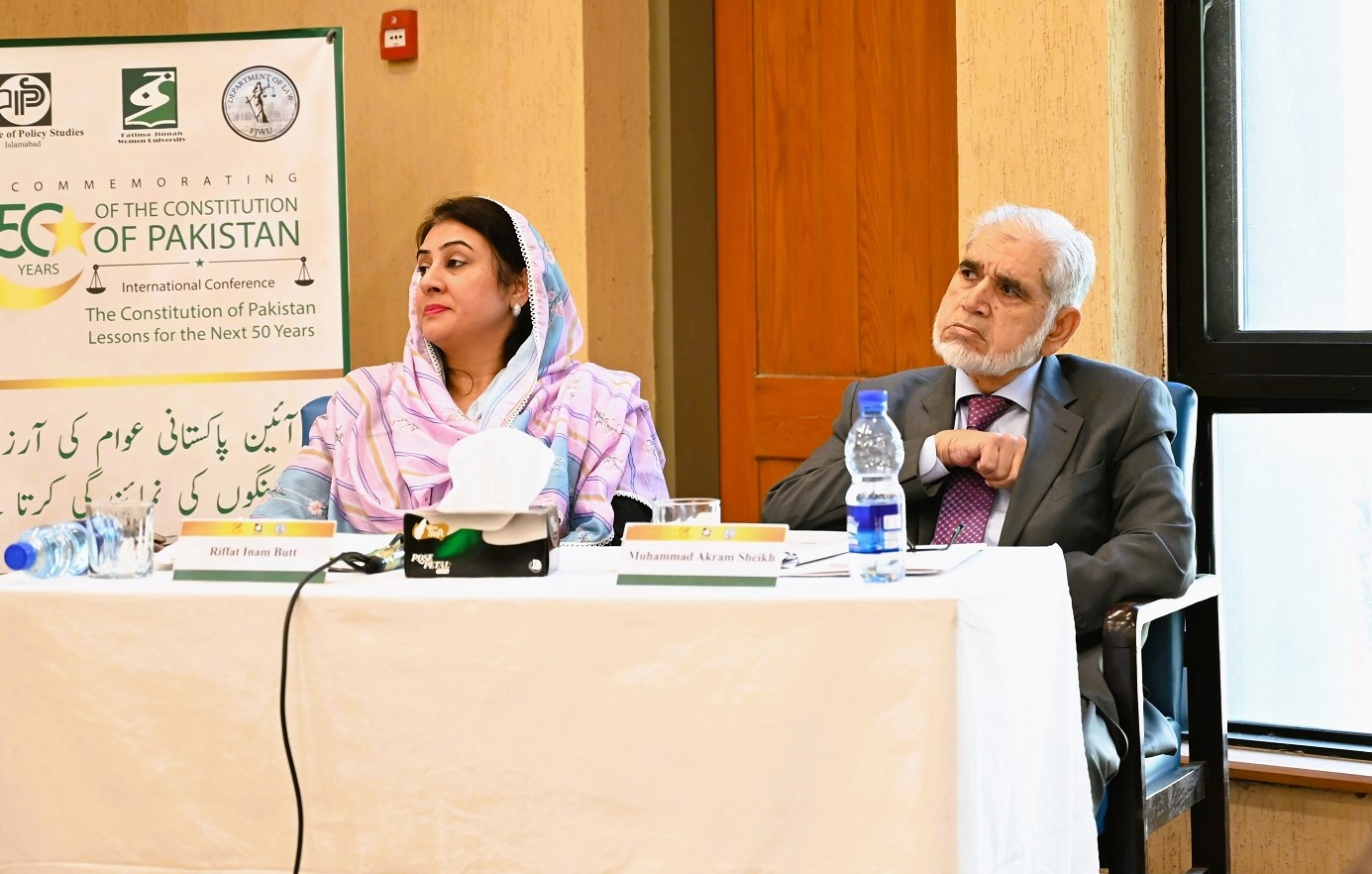
The disarray in the relations between the center and provinces has compromised the inclusiveness of diverse ethnicities and units, said Aftab Memon. The 18th Amendment has created problems for the country in terms of financial inclusion and distribution of resources. He said it is imperative to revisit key federal issues such as the 18th Amendment and the separation of judiciary from the executive to address the challenges effectively.
The experts said an underlying issue is the post-18th Amendment scenario, in which the center failed to restructure devolved departments, resulting in a reduction in federal fiscal space. This reduction, they said, could be used to prepare grounds to invalidate the 18th Amendment, which would be an injustice to the country.
The speakers suggested that concerted coordination between the NFC and the provinces to provide funds may be a realistic alternative. The solution to the post-18th Amendment interprovincial disparities lies in Article 140(A) of the amendment, i.e., devolution of political, financial, and administrative authorities to local governments.
Moreover, a chapter should be included in the constitution regarding local governments so that the provincial governments cannot hinder the local government elections, as is currently being done, said the speakers. This will ensure the protection of the powers of local governments and elections at regular intervals for Pakistan’s democratic future.
“Failure of the political system means failure of the constitution,” said Owais Ghani while highlighting the false dynamics of the national political system. He underscored that political systems and national policies should be designed keeping in view that Pakistan is a natural state.
Khalid Rahman also stressed reform of the electoral system and adoption of the proportional representation system. He also urged revival of the local bodies in their true form as these act as nurseries for grooming future politicians.
On the other hand, Raja Zafar-ul-Haq urged for strengthening the bond between the legislature and judiciary so that the constitution can remain a beacon of hope for the people.
“Civil-military relations are the most crucial aspect of the future democratic framework of Pakistan,” remarked Mehboob during a second-day session titled ‘Civil-Military Relations in a Democratic Pakistan’.
He underscored that “traditional civil-military relations are not sustainable” as “the current mess in economy, polity, and society cannot be separated from the so-called hybrid model of governance.” It is critical to adapt to the current challenges and develop a new, more dynamic approach to civil-military relations, he added.
He stressed the only way forward is through healthy and constructive civil-military dialogue, for which an active “National Security Committee (NSC) provides an excellent forum” as it can facilitate open communication, develop mutual understanding, and help define a course for Pakistan’s civil-military relations in the future.
The debate around civil-military relations centers heavily on the role of the military and power dynamics between military and civilians. “The problems in civil-to-civil relations, as part of civil-military relations, are often overlooked,” said Lt Gen (r) Lodhi.
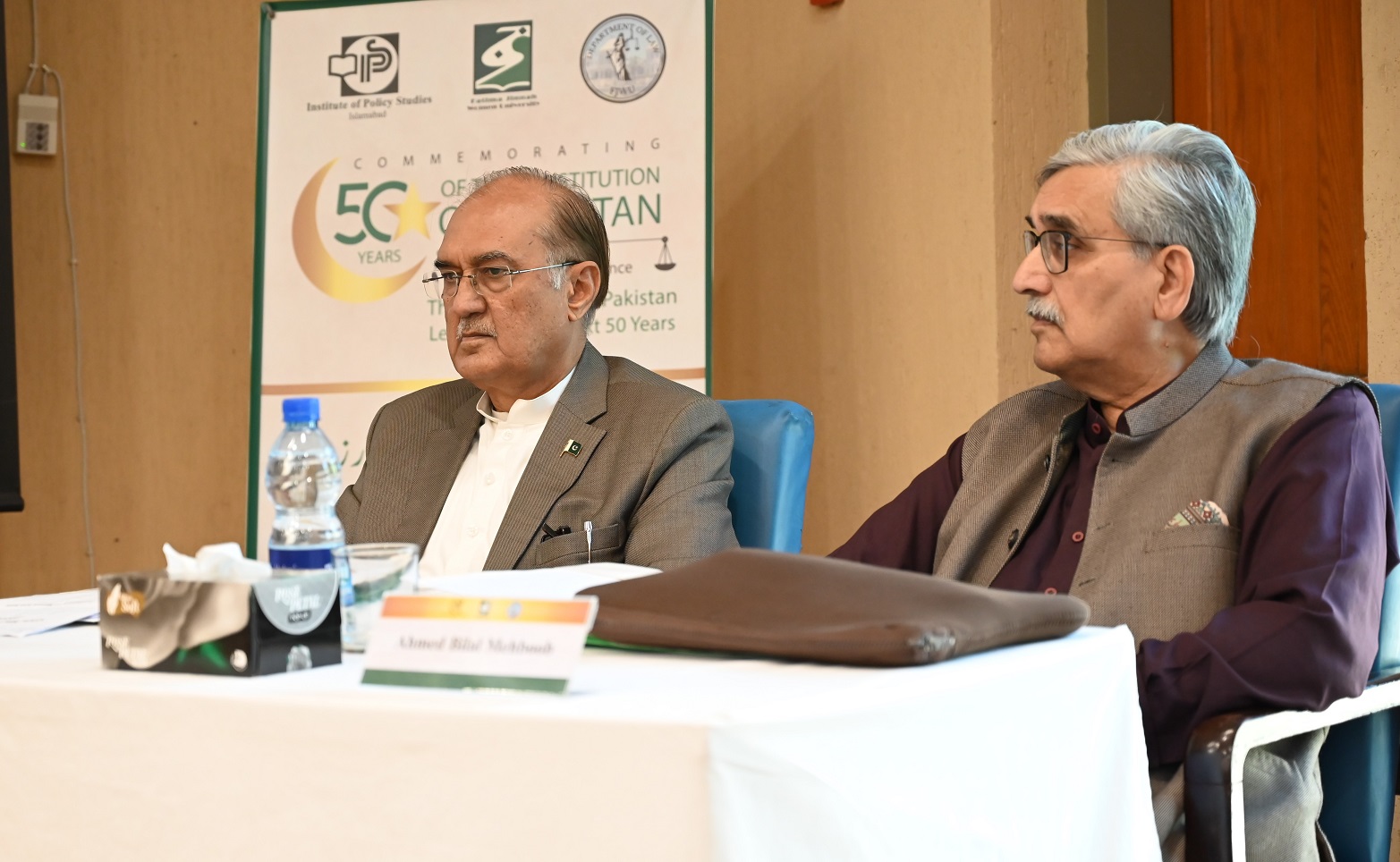
He underscored the need to broaden the scope of the civil-military relations dialogue to encompass civil-civil relations, which he remarked, were not functioning well, too, given the executive-judiciary, and federation-provinces-local bodies power dynamics.
Furthermore, he referred to civilian politicians seeking favors with the military to acquire power. He emphasized the significance of assessing the performance of civilian institutions and actors, as the level of collaboration and professionalism across civilian institutions is equally critical to democratic growth.
Regarding the perception that the military defines the country’s national interest, Lodhi said it is a consensus among states that national interest is the welfare and well-being of the people. So, it does not matter who defines it as long as it fulfills the purpose, he maintained.
In his analogy, the military is ‘the muscle’ of the state, and civilians ‘the brain.’ Therefore, both must work together to drive national growth. In this regard, “people’s welfare and well-being must be the common goal of both” the military and civilians, he stated. However, he added that politicians should show their capability instead of just seeking popularity.
The conference overall included eight sessions on six major themes in which multi-disciplinary researchers from more than eight national and three international universities presented 25 papers on various research topics related to the 1973 Constitution.


